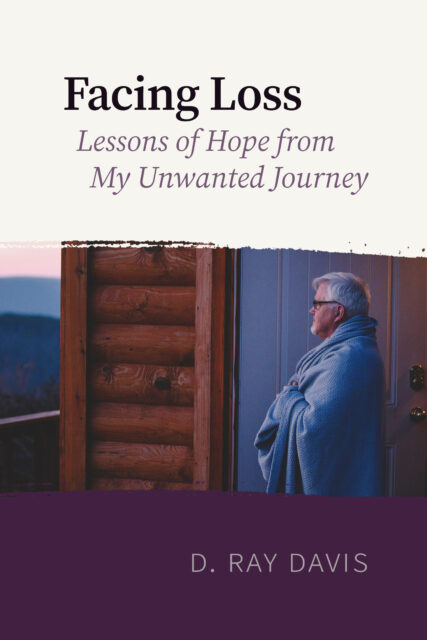When loss descended upon Job, his friends were quick to come to offer support.
They started out well.
The biblical account reveals, “Now when Job’s three friends heard of all this evil that had come upon him, they came each from his own place…” (Job 2:11). Friends are intended to be the comforters, fellow sojourners.
However, they quickly changed their tune.
“If one ventures a word with you, will you be impatient? Yet who can keep from speaking?” Job 3:2
They couldn’t simply comfort. They had to offer advice. Or explanations. Or even accusations. Job lamented in their presence, and they decided it was a teachable moment. Indeed, grief is a moment for great lessons; however, friends are not intended to be the teachers during loss. Supporters are supposed to comfort and not accuse.
“[Job] suffered the counsel of fools by listening to the advice of his friends.” R. C. Sproul, The Holiness of God
Shock, numbness, grief, and mourning become a platform for deep lessons. God uses the platform to teach and deepen the mourner. You, the friend, don’t need to give a mourner advice. You need to care. Job’s friends started out well but quickly decided it was their responsibility to teach Job.
Their comforting care for Job was at a deficit.
So, Job’s friends ask, “Who can keep from speaking?” My answer? You should keep from speaking if you’re tempted to offer quick answers or explanations for God. Pat answers do not help. Silly platitudes are not helpful.
“Resist seeing a hurting person’s sadness as something to fix…Don’t slap a Jesus sticker on someone’s devastated life…” Katherine and Jay Wolf, Suffer Strong
Oftentimes, Christians feel a need to protect God’s reputation by offering unfeeling theological platitudes. Now, I want to state clearly that in my experience, I cannot think of anyone who said anything to me that was inappropriate in my early days of grief. So, relax and read on. However, inappropriate and unhelpful comments are tempting to make, so I’ve decided to use my platform to speak into how we comfort others in their grief.
“Christ fiercely opposes matter-of-fact detachment.” David Powlison, Suffering and the Sovereignty of God
Some people say, “This was for the best.” Sometimes you hear, “God needed your loved one more than you did.” Bad theology. “God is in control,” it is said. True, God is in control, but skipping grief to jump to “all is well” is unhealthy and definitely unhelpful. God does not require you to diminish the loss or detach yourself from the pain in order to trust him.
“…comfort one another, agree with one another, live in peace…” 2 Corinthians 13:11
I have a colleague and friend, James Strange, who joined me for dinner at a meeting in Spain while on a work trip. After praying at our meal, James asked a question. He asked, “What’s the question you get tired of being asked?” As an aside, sometimes I wish I was an introvert because their waters run deep. I responded, “That’s a great question.” I explained a difficult question to answer is, “How are you doing?” It’s just too broad. It’s better to ask, “How are you doing today?” It’s narrower and easier to answer.
James followed my answer to his first question with another, more insightful question. James asked, “What’s the question you wish people would ask you?” Again, I was impressed by his question. I replied that I like to be asked, “What are you learning on this journey?” It’s a good follow up question.
“You are not facing your difficulty alone, for the Lord is closer than a friend or brother.” Robert L. Morgan, The Red Sea Rules
Recently, I met a new friend who is twenty-nine years old and is two years into his second marriage. Joe Hall lost his wife, Perrin, when he was twenty-six after a battle with cancer. He is wise, gentle, and experienced beyond his years. He shared with me the question he wished people had asked him during his early grief. “Can you tell me about your wife, Perrin?” He’s right. This is a great question because we want you to know the person we have lost.
Don’t be afraid to ask someone who has lost a loved one about the very loved one they’ve lost. Our loved ones leave an impact upon our lives. Joe is remarried now, and he and his wife named their sweet little daughter after his first wife. Our absent loved ones made an impact on this world, and we want their lives to continue to impact the world with their beauty, with their story.
“…when we minimize the pain we fail to love others and we failed to honor God.“ Dustin Shramek, Suffering and the Sovereignty of God
So, don’t be like Job’s friends. Instead, care enough to broach the subject without easy answers, excuses, lessons, or accusations. And ask good and redemptive questions. You might encourage someone, and you might learn some life lessons for yourself.
“For I have derived much joy and comfort from your love, my brother, because the hearts of the saints have been refreshed through you.” Philemon 1:7
“You’re thankful for the kind things people say, you forgive the dumb things, but you’re crushed by the silence…Most people are illiterate in the language of grief…” Nora McInerny, It’s Okay to Laugh



 Read the E-book Facing Loss: Lessons of Hope from My Unwanted Journey
Read the E-book Facing Loss: Lessons of Hope from My Unwanted Journey
great insight D. Ray. thanks
Glad to share!
Love this. Thanks for sharing.
Glad to share!
Insightful and practical!
Thanks, Pam! Loss and pain teaches insightful and practical lessons!
I have found too many people are uncomfortable with others being in an uncomfortable place in life. So in an effort to help or encourage often their words come across with hurt or pain. We need to be people of grace and kindness, both the grieving and the friend of the grieving. I have found my dear friends with good hearts truly are trying to help but when we see pain or uncomfort in someone’s life, we are quick to try to fix what God is doing in the life of a person.
Good word D. Ray.
It’s true, Nate! Especially, we should never seek to usurp what God is doing in the life of the mourner. Be a fellow journeyer not a fixer.
Thank you for posting this. I facilitate a GriefShare class and find this to be very helpful. Although no one said anything unkind to me when my husband died almost 19 years ago, these are questions I would have appreciated being asked.
Sherrill, I am so glad you’ve been helped by this entry. I am also glad you’re involved in GriefShare. I also went through GriefShare and found it very helpful to make sure I was comprehensive to cover every grief-related topic. I welcome you sharing my blog with any others in your group! May God use it to bring comfort and healing to many others.